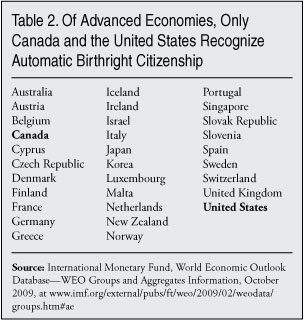He unabashedly wades into politically dangerous territory and yet continues to be rewarded by favorable poll results. He has clearly tapped into a reserve of public resentment for inside-the-Beltway politics. How far this resentment will carry him is anyone’s guess, but the Republican establishment is worried. His latest proposal to end birthright citizenship has set off alarm bells in the Republican party.
The leadership worries that Trump will derail the party’s plans to appeal to the Latino vote. Establishment Republicans believe that the future of the party depends on being able to capture a larger share of this rapidly expanding electorate. Trump’s plan, however, may appeal to the most rapidly expanding electorate, senior citizens, and may have an even greater appeal to the millions of Republicans who stayed away from the polls in 2012 as well as the ethnic and blue-collar Democrats who crossed party lines to vote Republican in the congressional elections of 2014. All of these voters outnumber any increase in the Latino vote that Republicans could possibly hope to gain from a population that has consistently voted Democratic by a two-thirds majority and shows little inclination to change.
And Nothing Odd About Supporting Such a Reading Critics say that Trump’s plan is unrealistic, that it would require a constitutional amendment because the 14th Amendment mandates birthright citizenship and that the Supreme Court has upheld this requirement ever since its passage in 1868. The critics are wrong. A correct understanding of the intent of the framers of the 14th Amendment and legislation passed by Congress in the late 19th century and in 1923 extending citizenship to American Indians provide ample proof that Congress has constitutional power to define who is within the “jurisdiction of the United States” and therefore eligible for citizenship. Simple legislation passed by Congress and signed by the president would be constitutional under the 14th Amendment.
Birthright citizenship is the policy whereby the children of illegal aliens born within the geographical limits of the U.S. are entitled to American citizenship — and, as Trump says, it is a great magnet for illegal immigration. Many of Trump’s critics believe that this policy is an explicit command of the Constitution, consistent with the British common-law system. This is simply not true. Congress has constitutional power to define who is within the “jurisdiction of the United States” and therefore eligible for citizenship. Although the Constitution of 1787 mentioned citizens, it did not define citizenship. It was in 1868 that a definition of citizenship entered the Constitution with the ratification of the 14th Amendment. Here is the familiar language: “All persons born or naturalized in the United States and subject to the jurisdiction thereof, are citizens of the United States and of the State wherein they reside.” Thus there are two components to American citizenship: birth or naturalization in the U.S. and being subject to the jurisdiction of the U.S.
Today, we somehow have come to believe that anyone born within the geographical limits of the U.S. is automatically subject to its jurisdiction; but this renders the jurisdiction clause utterly superfluous. If this had been the intention of the framers of the 14th Amendment, presumably they would have said simply that all persons born or naturalized in the U.S. are thereby citizens.
Indeed, during debate over the amendment, Senator Jacob Howard, the author of the citizenship clause, attempted to assure skeptical colleagues that the language was not intended to make Indians citizens of the United States. Indians, Howard conceded, were born within the nation’s geographical limits, but he steadfastly maintained that they were not subject to its jurisdiction because they owed allegiance to their tribes and not to the U.S. Senator Lyman Trumbull, chairman of the Senate Judiciary Committee, supported this view, arguing that “subject to the jurisdiction thereof” meant “not owing allegiance to anybody else and being subject to the complete jurisdiction of the United States.”





